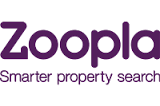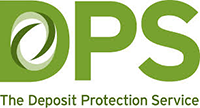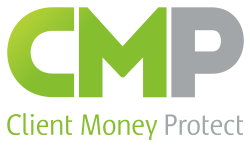Information
Wild & Co. understand that nowadays more and more people are renting their homes. We know that the quality and range of private rented accommodation in Hackney is better than ever before.
Renting is usually cheaper than owning and bills are more predictable too. Renting gives you more flexibility. You can move somewhere else relatively quickly, which is useful if you’re planning to move for a new job or are going away to study. Also, it’s less hassle than being an owner as you won’t need to pay for property maintenance – most of that will be done for you.
Before you start looking for somewhere to rent, you’ll need to think carefully about what you need and want.
For example, if you’re only there during the week, a small place might do just fine. If security is important, then a ground floor flat may be out. Do you want furnished or unfurnished accommodation or would something that’s just part-furnished be okay? Often it doesn’t make much
difference to the rent. If you have a car, you’ll need to check out the parking situation. How near are you to public transport and other local amenities? Wild & Co. have got a lot of local knowledge about the various areas in Hackney and can tell you all about local amenities and services.
We’re very happy to talk over with you what you need, and advise you about the pros and cons of your options. If you’re prepared to share, we may even be able to help you find a flatmate.
Dealing directly with private landlords to find a property can be worry in. You’ll have to meet a total stranger at a property. Not all landlords are regulated and they don’t need to be part of a professional trade body or trade association. Lettings agents offer greater peace of mind and security.
We take pride in offering a fair and transparent service to both tenants and landlords.
It will cost you nothing to register with us and once we know what sort of place you’re looking for, we’ll immediately notify you when something suitable comes up. We’ll stay in touch with you even if nothing comes up immediately. Bear in mind that a lot of property to rent won’t be available to move in to for at least four weeks so the sooner you register with us, the better.
If a suitable property comes up, Wild & Co will arrange a viewing at a time that suits both you and the landlord. We’ll advise you about what to look out for and we’ll explain what legal rights and responsibilities both you and the landlord will have.
Let us know as soon as possible if you’re interested in the property and we will then request a holding deposit, the equivalent of one week’s rent. If your offer is not acceptable to the landlord for any reason, the holding deposit is fully refundable. Remember that other people will probably also be interested in it. Make sure you’re in a strong position for the landlord to accept your application – have your employer and previous landlord information, bank details, photos ID and full address with postcodes for the last three years ready. You will need these to submit for referencing. If you think you may need a guarantor, get this set up in good time.
If you like the property, we will ask you to fill in a lettings application form and to provide photo ID (usually a passport). If the landlord accepts your offer, it will be subject to satisfactory referencing. We will employ a reference agency company to contact you to obtain references, to include credit checks, employment and landlord references. You will have to pass these checks before the landlord will formally accept you as a tenant. In some cases, you may need to provide a guarantor, who will also need to pass these checks. We do not charge you a fee for these checks.
Before you can move in, you’ll have to sign a tenancy agreement. The tenancy agreement sets out the legal rights and responsibilities of both landlord and tenant. Most new tenancies today are Assured Shorthold Tenancies which are usually for a fixed term of 6 or 12 months.
It’s important to understand all the terms of the tenancy agreement before you sign it. It lists all your responsibilities so read it carefully. We’ll be happy to go through this with you before you sign it.
Once both parties have signed the tenancy agreement, you’ll usually have to pay the first month’s rent and a deposit. After that, you may find you are dealing directly with a landlord who will look after the management, but in some cases we will be managing the property and you’ll need to get in touch with us if there any problems.
In most cases, you’ll be asked to pay us a deposit. We’ll always give you a written receipt for this and make sure it’s protected by a government-approved Tenancy Deposit Protection Scheme.
The landlord will be able to keep some or all of this deposit if you cause damage to the property (beyond fair wear and tear).
If, at the end of your tenancy you feel that your deposit has been withheld unfairly, the Protection Scheme can step in and sort out disputes with your landlord. Click here for more information about tenancy deposit schemes.
We advise all landlords to provide you with a detailed inventory before your tenancy starts. This lists everything in the property and its state and condition. You should always check that the inventory is correct and let us know if there’s a problem with it when you move in.









